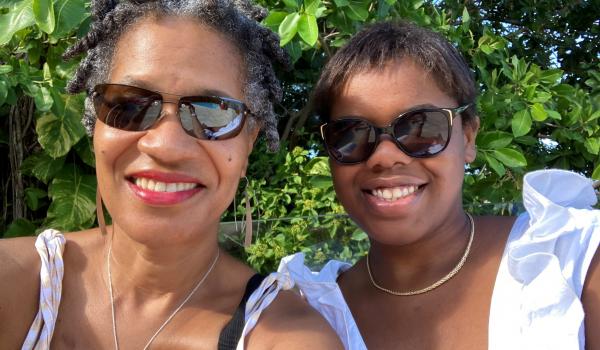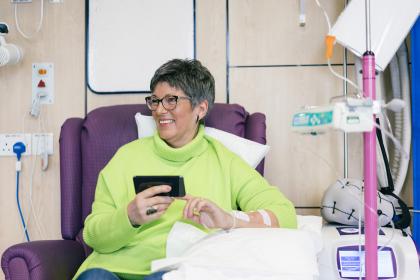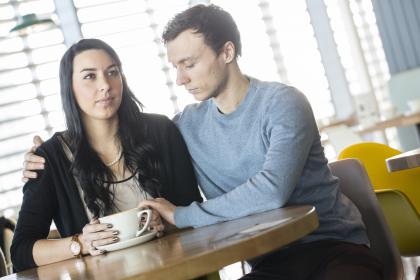When Adele was diagnosed with breast cancer in 1999, her doctor put it down to bad luck. She had no idea that a little over eight years later she'd be dealing with an ovarian cancer diagnosis and the knowledge that she had a genetic mutation that made both cancers more likely in the first place. Here Adele talks about genetic testing and how her diagnosis affected the whole family.
I was a fit and healthy 35-year-old when I found myself diagnosed with breast cancer. After a lumpectomy and radiotherapy, life went on, but when I questioned my GP about why someone in my position would get breast cancer, I was told it was probably just bad luck and prescribed the preventative drug tamoxifen.
More than just bad luck
Nearly a decade later I was diagnosed with ovarian cancer. The consultants said that it was unusual for a person to be diagnosed with two separate cancers without there being genetic involvement and I found out I have a mutation in my BRCA2 gene. If I’m honest, knowing I had a gene mutation gave me a sense of relief because it helped explain why I had been so unlucky to get cancer twice. But I was immediately aware of the implications for the rest of my family.
I also have a daughter, Zindzi. When a parent carries the gene, each child has a 50 per cent chance of inheriting it – there's nothing you can do but hope that’s not the case. When I was first diagnosed, I wanted her tested straight away, but the healthcare professionals counselled against this as she was only 13. They said that she should ideally be at least 18 and should be fully aware of the implications of the possible results. Zindzi finally had the test in her early 20s. I probably pressured her a little bit – she’d just finished at university and was about to start a new job and I was worried that she might forget about it. I was actually away when the results came, so she opened them on her own and she found out she doesn’t have the BRCA2 mutation.
Looking back, I would advise people not to do what I did. We hadn’t really prepared for what we would do if we found out that she did have the genetic mutation. It’s crucial for anyone getting a genetic test to be properly prepared for the results. Genetic testing services should offer this option and make it an easy process.
Scary
I've never experienced a recurrence of breast cancer, but in theory I'm still at risk, so I decided that if any new lumps of any kind came up in either breast, I'd have a double mastectomy and reconstruction straight away.
The ovarian cancer did return – in 2010 when I had surgery and chemotherapy, and again more recently in 2018, when I had further surgery. This surgery was initially unsuccessful, which was the scariest part for me – I’ve been dealing with cancer for so long now that I generally take it in my stride but hearing that surgery had been unsuccessful was hard. Thankfully, I went in for surgery a second time in February 2019 and this was successful. I then had chemotherapy which I completed in July 2019 and since then I’ve remained cancer free.
Advice
Everyone responds differently when they’re diagnosed with cancer, or when they find out they have a BRCA mutation. You have to remember that it’s not a death sentence, and there’s no guarantee that you will get cancer even if you have the mutation – my grandmother, who we believe we inherited the BRCA2 mutation from, died in her 70s having never had a cancer diagnosis. I believe you should live life hopefully rather than in fear – and also that knowledge is power. After everything we’ve been through, as a family we believe in BRCA testing and preventative surgery.
If you’ve been affected by this story and would like to speak to a specialist nurse, you can call our dedicated support line on 020 7923 5475 or contact us: [email protected]. We're open from 9am until 5.30pm, Monday to Friday.





